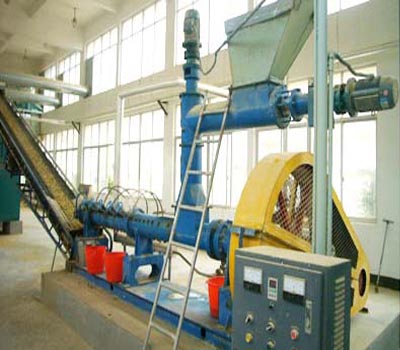The main purpose of oilseed pretreatment
Oilseed pretreatment is an indispensable link in the process of oil processing, and its main purpose is to lay the foundation for the subsequent oil extraction and refining process. Through scientific and reasonable pretreatment, the oil yield can be effectively improved, the oil quality can be improved, the production cost can be reduced, and the service life of the equipment can be prolonged. The following is a detailed description of the main purpose and function of oil pretreatment.

Improve the oil yield
The primary purpose of oilseed pretreatment is to improve oil yield. In the natural state, the oil is wrapped in the cell structure, so it is difficult to completely release the oil directly by pressing or leaching. Pretreatment processes, such as cleaning, crushing, softening, embryo rolling and steaming, can destroy the cell structure, make the oil easier to release, and thus significantly improve the oil yield. This not only improves the economic benefits, but also reduces the waste of resources.
Improve the quality of oil
Pretreatment process can remove impurities in oil, such as sediment, metal particles, dust and other non-oily substances. If these impurities are not cleaned up in time, it will not only affect the quality of refined oil, but also lead to equipment wear or damage. In addition, through proper heating and tempering treatment, the moisture and free fatty acid content in oil can be reduced, thus reducing the possibility of oxidative deterioration and ensuring the stability and safety of the final product.
Reduce production costs
Through pretreatment, the subsequent process can be optimized and the energy consumption can be reduced. For example, the oil after softening and embryo rolling is easier to be squeezed or leached, which reduces the pressure burden of mechanical equipment, thus reducing energy consumption and equipment maintenance costs. At the same time, pretreatment can also reduce the amount of leaching solvent and the workload of degumming and deacidification in the refining process, thus reducing the production cost as a whole.
Extend the service life of the equipment
The oil without pretreatment may contain hard impurities or metal particles, which will wear the equipment and shorten its service life during processing. The cleaning process can effectively remove these impurities and protect the equipment. In addition, by adjusting the water content and temperature of the oil, the failure of the equipment due to excessive drying or humidity can be avoided, thus prolonging the service life of the equipment.
Improve production efficiency
Reasonable pretreatment process can make the subsequent pressing or leaching process smoother. For example, the surface area of oil after embryo rolling is increased, which is helpful for solvent penetration and improves leaching efficiency; The steaming and frying process can improve the plasticity of the blank and make it easier to deform during the pressing process, thus improving the pressing efficiency. All these can significantly improve the operation efficiency of the whole production line.
Meet different processing requirements
Different types of oil have different physical and chemical characteristics, so it is necessary to carry out targeted pretreatment. For example, soybeans need to be peeled to reduce fiber content, while peanuts need to be shelled to improve oil yield. Through scientific pretreatment, the processing needs of different oils and products can be met, which provides guarantee for diversified production.
In a word, oilseed pretreatment is a key step in oil processing technology, and its main purpose is to improve oil yield, improve oil quality, reduce production cost, prolong equipment life and improve production efficiency. Through modern and scientific pretreatment technology, not only the efficient utilization of resources can be realized, but also the market demand for high-quality oil products can be met. In the future development, with the continuous progress of technology, the oilseed pretreatment process will be more refined and automated, which will inject new vitality into the development of oil industry.
